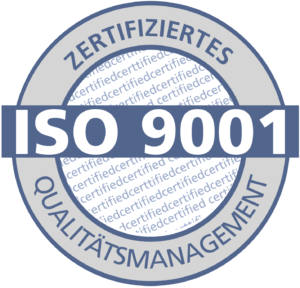Sustainable – energy efficient – automated
Did you expect it so soon? Some are not yet quite sure whether we are overreacting with the new orientations for sustainability, energy efficiency and climate, while others are already demanding zero emissions. If you look at scientific studies, the answer is clear: We have acted too late and not consistently in the direction of sustainability and in some areas we can only limit the damage, but no longer prevent it completely. Initial changes have been set in motion, but this too is a process that requires a meaningful and steady flow.
So the reorientation towards sustainability is more than necessary and requires immediate rethinking and action! In schools, universities and in parts of the companies the first steps have already been taken.
Still unthinkable for many: The focus on sustainability has absolute priority – and that even before profit maximization! It is exactly this orientation that has a high potential for a successful reorientation of companies.
In many areas, we are still in the process of defining what exactly is meant by sustainability for the various specialist areas. Rudolf Hein from Konstruktionsbüro Hein formulates this in an interdisciplinary way, as follows: “In the sense of a world worth living in for the following generations of humans, animals and plants, resources must be conserved and the regeneration of air, water and earth must be possible in such a short time that no permanent impairment is caused. It is important that we reach this goal together, consistently and with big steps. Every individual has a duty here and must start with himself.
Sustainable – energy efficient – automated
The market, and this does not only concern the plastics sector, is undergoing a transformation to meet the requirements of sustainability and automation. If we want to bring sustainable products onto the market, they must first be geared to sustainability.
As a result of this reorientation towards sustainability, for example, technologies and packaging that are not ecologically efficient are disappearing, making contents appear larger or superfluous in the way they are used.
It is not sustainable to purchase goods from countries that do not (cannot) yet think about sustainability. 90% of the plastic waste that enters the world’s oceans from the interior via rivers comes from the ten major river regions in Africa and Asia.
We should not allow cheap products and cheap tools to be imported from Asia without taking into account the emissions that affect our climate and pollute our oceans. Conversely, this also influences our exports to other countries. Here you can take the opportunity to be the first to qualify energy-efficient and sustainable transport routes. Just think of the air rotors, which have been proven to significantly reduce the fuel consumption of ships.
Sustainability could therefore also become an export hit for Germany and Europe. Demonstrably ecologically produced goods are produced in an energy-efficient manner and delivered to customers in high quality via energy- and emission-reduced transport routes. However, this also has its price. Are we prepared to pay it for consumer goods?
It is up to us whether we finally start thinking and acting sustainably throughout.
Proof of the usability and sustainability of bioplastics and recyclates
How do plastics from renewable resources behave in relation to petroleum-based plastics, how do they position themselves in terms of their usability and what evidence is available on sustainability? At the presentation of the Biomat project at the Technology Day of Konstruktionsbüro Hein on 14.02.2020 in Hanover-Langenhagen, the audience was able to experience first results concerning bio-plastic raw materials in the lecture by Mrs Magnani (Ford).
Recyclates are another topic. Material cycles must allow for more comprehensive and consistent recycling in the short term. The aim is to reuse the plastic as often as possible until it is finally thermally incinerated so that the potential energy can be used. So far, however, this only applies to thermoplastics.
So that the consumer can clearly recognise sustainable production through bioplastics and recycling, we need labelling similar to “energy efficiency”. Here, too, plastics institutes in Germany should be pioneers, so that we do not have to get annoyed again about questionable specifications from the EU. We need a sustainability label for the production of the product including the raw materials, one for the use of the product and recycling.
Correct the distorted image in the plastics processing area
Through improved information and differentiation, the resulting distorted picture in the field of plastics processing must be corrected in all openness and objectivity, especially among young people. This should be done with proof of sustainability. For many bioplastics, corresponding information can already be read and compared in the “GABI” database. Here, the institutions of the plastics world have a duty to develop concepts, films, lectures at schools etc., to activate comrades-in-arms from the economy and to publish the results where they are noticed by the younger generation.
Sustainable product development
Only with sustainable product development can the subsequent processes be designed accordingly. The last essential addition to the work processes for sustainable development and production of components made of and with plastic is the work step “VorKon”, which was brought forward into early product development and developed by Konstruktionsbüro Hein.
With “VorKon” and the subsequent work steps, the production problems that are often still common today are preventively eliminated. So everything has to be considered and optimized much earlier in product development, because in automatic tool manufacture and production we need a defined large process window without defects in the product, in the tool or on the injection molding machine. It makes sense to prescribe this sustainable approach for new projects and to document it consistently so that possible later mistakes are inevitably added to a future learning curve.
Products that can be automated require a design that is as robust as possible and suitable for plastic. This shifts the priorities and the demands on the designers.
Sustainable automatable injection moulding tools in production
Internally insulated injection molds (IsoForm®) reduce the energy requirement for temperature control to 1/10 to 1/20 depending on the application. At the same time, the energy requirement for the hot runner is also significantly reduced because the consistent insulation reduces the temperature transfer from the hot runner to the mold.
This internal insulation, even if the products are designed for plastic, enables high process stability, which is not only required for automation in injection molding production. This applies to both thermoplastics and cross-linking plastics.
By automation in production we mean that an injection moulding machine, for example, approaches three different products overnight without error, measures them and, if necessary, automatically corrects the settings via DOE (Design of Experiments) if a dimension approaches a tolerance window limit in one direction.
Of course, the injection moulds, which can be set up and started automatically, must be designed differently. A partial filling in the start-up process must be securely fixed on one side and the ejectors and sliders must be designed to demould the partial fills.
Current projects with IsoForm® moulds allow the replacement of these modules with interchangeable modules with a surface temperature of up to 180°C. This is achieved by temperature control with pressure-superimposed water using a robot.
Are we ready for sustainable automation?
Before this change in processes and procedures can be comprehensively successful, the changeover must succeed in the minds of the actors. The current market situation serves as an unwelcome aid to this, as it shows that only those who have embarked on the path of sustainable automation early on or will do so immediately can continue to exist.
The path of automation includes the knowledge that seems to be available everywhere on the web. This applies to procedures, technologies, processes and workflows in the world of plastics only to a very limited extent, as these require diverse and very specific knowledge.
With the employees who can now retire very early or change companies, important knowledge also leaves the company if it has not previously been archived and kept alive in a meaningful way so that all employees can work with it and find it.
Everyone is talking about AI, the artificial intelligence, which is supposed to control and automatically correct future work processes automatically and unmanned. But how is extensive knowledge to be transferred to the AI if this knowledge is no longer available in the company? This shows how important it is to archive knowledge in the company.
The areas that are not affected by AI-influenced automation in the short term also need the knowledge to train the next employee. We are currently working on a system to archive knowledge and keep it so alive that it can be used, maintained and supplemented on a daily basis.
The transfer of knowledge also requires the use of new opportunities for learning and teaching in all areas. One cannot understand why at every school, college and university standard knowledge is taught by teachers and not by optimally designed media. This would free up teaching staff capacities for applications and practical projects.
It remains exciting
In my remarks I have only touched on a few topics of the present time, because there are many more influencing factors. Wars, economic wars, climate changes, insect and species extinctions or the current corona virus, which affects large parts of an economic power such as China and thus also affects us due to the global connections.
Even if a glance at the news does not lessen current concerns, focusing on the implementation and positioning of sustainability before profit maximisation, as mentioned here, would be an important step towards a better future with high economic potential for all those who start early.
Rudolf Hein (Managing Director)



Leave a Reply
Want to join the discussion?Feel free to contribute!